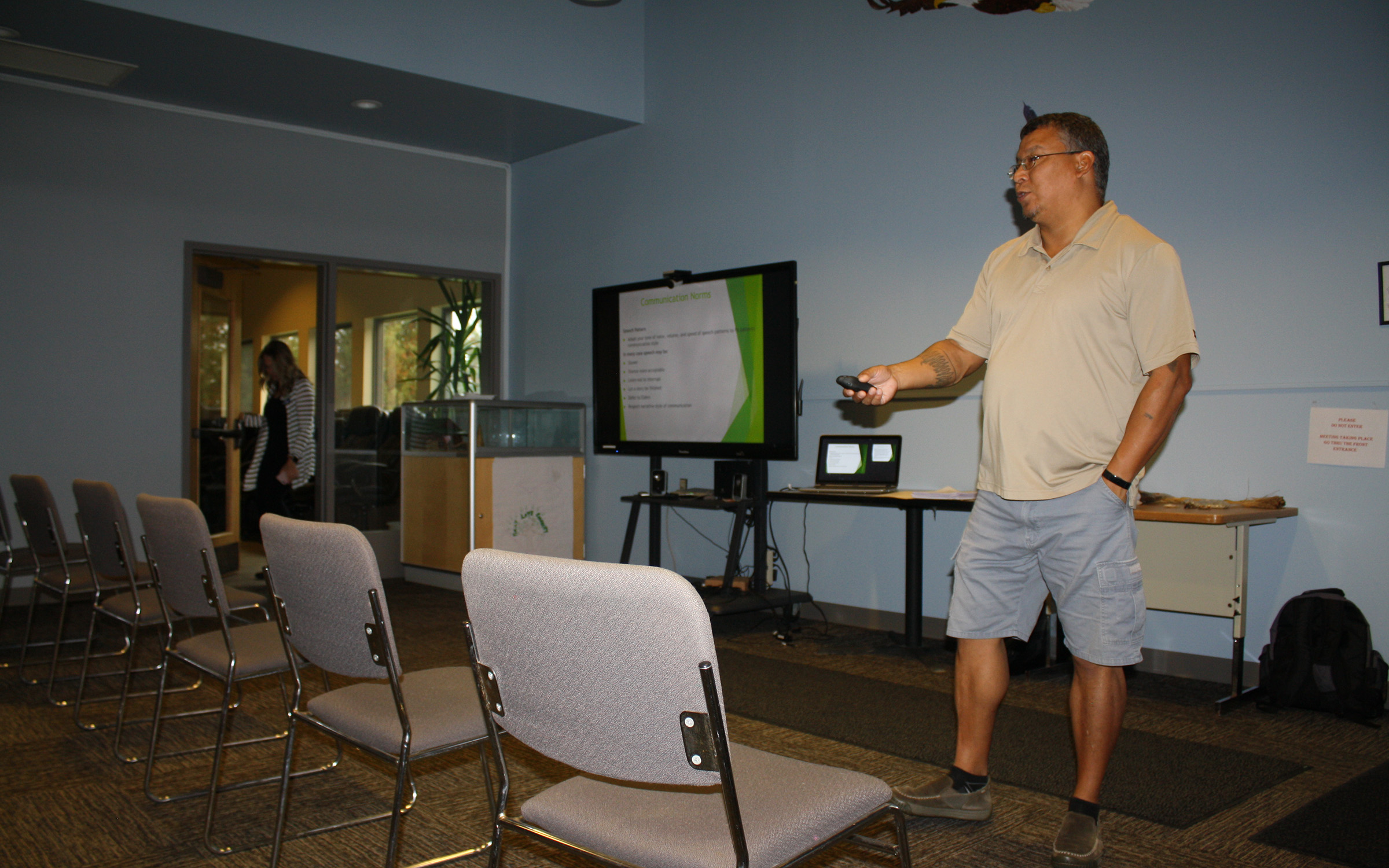
PRESQUE ISLE, Maine — A cultural sensitivity training by Aroostook Band of Micmacs aimed Friday to help professionals from public safety and health care better understand Native American cultural practices and why such knowledge is crucial when interacting with the native community in emergency or medical situations.
John Dennis, cultural director for the Aroostook Band of Micmacs, held the fourth and final cultural sensitivity training for this year at the Micmacs’ administrative building in Presque Isle on Oct. 4. Dennis explained to a group of around 20 public safety and health care professionals some of the many ways in which Native American cultural practices differ from non-Native practices.
Differences in cultures can become confusing when misunderstandings occur between members of Micmac culture and people from law enforcement, emergency management or health care, Dennis said.
For instance, while non-Native culture often encourages people to “speak up” and actively contribute to conversations, Micmac culture emphasizes listening more than speaking. A Native patient in a medical appointment may take awhile to answer a question not out of rudeness, but because they might need time to gather their thoughts.
“In Native communities, we’re storytellers. Taking longer to answer a direct question is a sign of respect because it shows that the question deserves a lot of thought,” Dennis said. “Interrupting someone could make them forget what they were going to say.”
One of the most common cultural misperceptions that Dennis has encountered is believing that a Native person is showing someone disrespect by not making eye contact during conversations.
“For us, not making eye contact is a sign of respect,” Dennis said. “To look into someone’s eyes is more intimate; you’re looking into the soul and spirit of a person.”
Dennis also shared information about traditional Micmac herbal medicines such as cedar, sweet grass, sage and tobacco — all items that law enforcement or emergency medical personnel could potentially find in a Micmac person’s car.
Micmac communities use tobacco as offering to the Sacred Fire during tribal ceremonies and the tobacco does not contain illegal drugs or substances, nor does the sweet grass, sage or cedar.
Public safety officials might also come across Micmac community members with traditional regalia or handmade projects such as baskets or beadwork. They will allow others to touch those items, Dennis said, but only with permission.
“Our culture and spirituality are inseparable,” Dennis said. “Objects such as baskets and beadwork are just as much about spirituality as they are about self-expression.”
Vilma Craig, director of primary care for Northern Light A.R. Gould Hospital, was one of many employees from the Presque Isle hospital who attended the cultural sensitivity training on Friday. The training helped her become better informed on aspects of Micmac culture, she said.
“I’m Hispanic, so I see a lot of correlation with the cultural aspects, especially with the family dynamics,” Craig said. “It’s good to be more patient and mindful when we’re dealing with cultural differences.”
Aroostook County Sheriff Shawn Gillen said that he has supported the cultural sensitivity trainings from the beginning as a way to bridge the gap between law enforcement and the Native communities in Aroostook County.
“Many officers have told me that they’ve never had the opportunity to attend this type of training before,” Gillen said. “Having a greater cultural understanding can make interactions much easier for both parties.”
The Aroostook Band of Micmacs hopes to hold an annual cultural sensitivity training every fall, and will offer the training to businesses and organizations.






